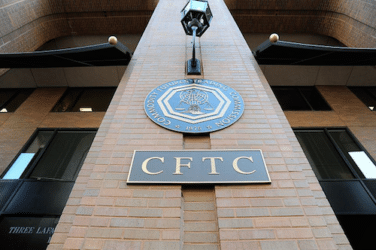Statement Of CFTC Commissioner J. Christopher Giancarlo Regarding The Implementation Date For Margin For Uncleared Swaps
09.01.2016Mondovisione – The Commodity Futures Trading Commission (CFTC) and the U.S. Prudential Regulators1 have ordered U.S. swap dealers to proceed forward this week in implementing globally agreed margin requirements for uncleared swaps transactions. This direction comes despite last week’s announcement by regulators in Australia, Hong Kong and Singapore to delay this implementation date2 and a similar announcement several months ago by the European Commission of their own delay. These jumbled decisions confirm the failure of U.S. and overseas regulators to coordinate the implementation of new margin requirements. Worse, they leave U.S. regulators going it mostly alone3 to the detriment of American financial firms, their employees and the American businesses they serve.
As background, in March 2015, BCBS-IOSCO4 published a final policy framework that established standards for margin requirements for uncleared swaps and a phased-in implementation period for these requirements.5The U.S., European Union and other countries jointly agreed to this framework and implementation period. Indeed, in the press release announcing the framework, BCBS-IOSCO stated that it would “continue to monitor progress in implementation to ensure consistent implementation across products, jurisdictions and market participants.”6
In last week’s decisions, the regulatory agencies of Australia, Hong Kong and Singapore recognized that a delay is necessary to ensure consistent implementation and is the “most practical way forward” to avoid “unintended consequences to financial markets.”7 Unfortunately, for U.S. market participants, the CFTC and the U.S. Prudential Regulators have decided not to follow suit. Their choice to go forward means that there will not be consistent implementation in the timing of margin requirements as previously agreed. Worse, it means that the U.S. will have lost negotiating leverage to cause overseas regulators to implement the requirements in the event of further delays.
What makes the U.S. regulators’ decision not to delay so astonishing is its blindness to commercial reality. American markets will now have a higher margin structure than most of the rest of the world giving major overseas derivatives markets a competitive advantage over American markets. The decision ensures that overseas competitors will profit handsomely to the tune of likely tens of billions of dollars in new customer business taken from American firms. Those new revenues will be an enormous incentive for European and Asian dealer firms to put pressure on their respective regulators to postpone future implementation of the margin rules.
If this assist to overseas market participants is meant to be based on a matter of principle, then it comes at the expense of U.S. financial firms, their employees and the American businesses they serve. U.S. industrial and other companies that seek to hedge their costs using uncleared swaps will be at a disadvantage compared to their overseas counterparts. U.S. businesses may either face higher costs or choose not to hedge their risks. The latter choice would undermine the purpose of the margin requirements and the ostensible purpose of Dodd-Frank – reducing systemic risk.
Even from a practical standpoint, the coming days will be enormously challenging for U.S. market participants as dealers are still working to finalize account documentation.8 Some observers warn of a liquidity crunch because certain dealers will not be ready to trade with other dealers.9 Unfortunately, U.S. regulators appear more concerned with sticking to an arbitrary deadline than the health of American markets and American market participants.
The current situation is a failure of U.S. trade negotiation. Faced with European and Pacific regulatory delays, U.S. regulators should not have forged ahead with the September 1st implementation date. Rather, they should have announced a similar pause, and immediately gone back to the negotiating table to craft a common implementation timeframe. This is yet another example of the failure of U.S. policymakers to negotiate harmonization in regulations as called for in the September 2009 G-20 Leaders’ Statement10 in a manner that does not place American markets at a competitive disadvantage.






